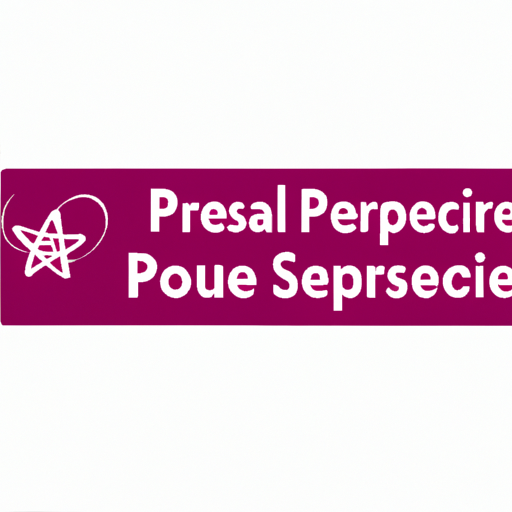

Title: The Latest Special Purpose Specification: Advancements and Applications

1. Special Purpose Specification in Robotics (250 words) Robotic systems have witnessed remarkable progress due to special purpose specifications. The integration of advanced sensors, actuators, and algorithms has enabled robots to perform complex tasks with precision and efficiency. For instance, special purpose specifications in industrial robotics have led to the development of collaborative robots (cobots) that can work alongside humans, enhancing productivity and safety in manufacturing environments. Additionally, special purpose specifications have enabled the creation of autonomous drones for various applications, including surveillance, delivery, and inspection.
2. Special Purpose Specification in Healthcare (250 words) The healthcare industry has greatly benefited from special purpose specifications, revolutionizing patient care and medical procedures. Specialized medical devices equipped with advanced sensors and algorithms have improved diagnostics, monitoring, and treatment outcomes. For example, wearable devices with special purpose specifications can continuously monitor vital signs, providing real-time data for early detection of health issues. Surgical robots with specialized specifications have enhanced precision and minimized invasiveness, leading to improved surgical outcomes and reduced recovery times.
3. Special Purpose Specification in Energy (250 words) The energy sector has witnessed significant advancements through special purpose specifications, contributing to the development of sustainable and efficient solutions. Specialized sensors and control systems have enabled the optimization of energy generation, distribution, and consumption. Smart grids equipped with special purpose specifications can monitor and manage energy flow, reducing wastage and improving overall efficiency. Furthermore, special purpose specifications have facilitated the integration of renewable energy sources into the grid, enhancing the reliability and sustainability of power systems.
4. Special Purpose Specification in Transportation (250 words) Transportation has experienced transformative changes with the integration of special purpose specifications. Advanced sensors, connectivity, and algorithms have led to the development of autonomous vehicles, revolutionizing the concept of mobility. Specialized specifications enable vehicles to perceive their surroundings, make informed decisions, and navigate safely. Moreover, special purpose specifications have facilitated the implementation of intelligent transportation systems, optimizing traffic flow, reducing congestion, and enhancing safety.
Conclusion (150 words) The latest special purpose specifications have revolutionized various industries, enabling the development of advanced technologies and solutions. From robotics to healthcare, energy, and transportation, these specifications have paved the way for increased efficiency, improved safety, and enhanced sustainability. As technology continues to evolve, it is expected that special purpose specifications will play an even more significant role in shaping the future of industries, unlocking new possibilities and driving innovation.
Title: The Latest Special Purpose Specification: Advancements and Applications

1. Special Purpose Specification in Robotics (250 words) Robotic systems have witnessed remarkable progress due to special purpose specifications. The integration of advanced sensors, actuators, and algorithms has enabled robots to perform complex tasks with precision and efficiency. For instance, special purpose specifications in industrial robotics have led to the development of collaborative robots (cobots) that can work alongside humans, enhancing productivity and safety in manufacturing environments. Additionally, special purpose specifications have enabled the creation of autonomous drones for various applications, including surveillance, delivery, and inspection.
2. Special Purpose Specification in Healthcare (250 words) The healthcare industry has greatly benefited from special purpose specifications, revolutionizing patient care and medical procedures. Specialized medical devices equipped with advanced sensors and algorithms have improved diagnostics, monitoring, and treatment outcomes. For example, wearable devices with special purpose specifications can continuously monitor vital signs, providing real-time data for early detection of health issues. Surgical robots with specialized specifications have enhanced precision and minimized invasiveness, leading to improved surgical outcomes and reduced recovery times.
3. Special Purpose Specification in Energy (250 words) The energy sector has witnessed significant advancements through special purpose specifications, contributing to the development of sustainable and efficient solutions. Specialized sensors and control systems have enabled the optimization of energy generation, distribution, and consumption. Smart grids equipped with special purpose specifications can monitor and manage energy flow, reducing wastage and improving overall efficiency. Furthermore, special purpose specifications have facilitated the integration of renewable energy sources into the grid, enhancing the reliability and sustainability of power systems.
4. Special Purpose Specification in Transportation (250 words) Transportation has experienced transformative changes with the integration of special purpose specifications. Advanced sensors, connectivity, and algorithms have led to the development of autonomous vehicles, revolutionizing the concept of mobility. Specialized specifications enable vehicles to perceive their surroundings, make informed decisions, and navigate safely. Moreover, special purpose specifications have facilitated the implementation of intelligent transportation systems, optimizing traffic flow, reducing congestion, and enhancing safety.
Conclusion (150 words) The latest special purpose specifications have revolutionized various industries, enabling the development of advanced technologies and solutions. From robotics to healthcare, energy, and transportation, these specifications have paved the way for increased efficiency, improved safety, and enhanced sustainability. As technology continues to evolve, it is expected that special purpose specifications will play an even more significant role in shaping the future of industries, unlocking new possibilities and driving innovation.